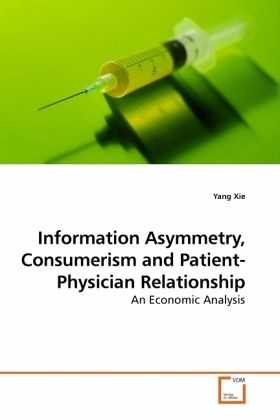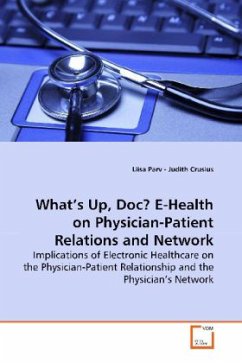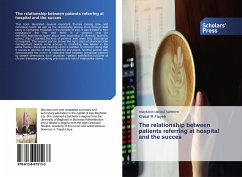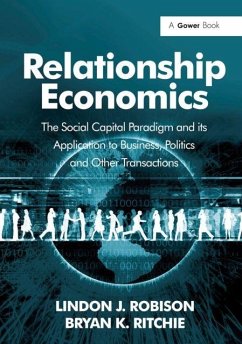
Information Asymmetry, Consumerism and Patient-Physician Relationship
An Economic Analysis
Versandkostenfrei!
Versandfertig in 6-10 Tagen
32,99 €
inkl. MwSt.

PAYBACK Punkte
16 °P sammeln!
In the economics literature, clinical decision making has been modeled as a physician agency problem. In such a framework, economists assume that patients possess no information and have to delegate to physicians, who act as patients perfect agent and make clinical decisions for the patients. This book re-examines the assumptions made in the traditional physician agency theory. It provides an economic analysis of how treatment choices are made when allowing different levels of information asymmetry between patients and physicians. It presents a theoretical framework and an empirical analysis t...
In the economics literature, clinical decision making has been modeled as a physician agency problem. In such a framework, economists assume that patients possess no information and have to delegate to physicians, who act as patients perfect agent and make clinical decisions for the patients. This book re-examines the assumptions made in the traditional physician agency theory. It provides an economic analysis of how treatment choices are made when allowing different levels of information asymmetry between patients and physicians. It presents a theoretical framework and an empirical analysis to demonstrate how different levels of information asymmetry and different levels of patient s awareness regarding their information affect patients trust towards physicians, and thereby affect the clinical decision making. The book also proposes a new approach to estimate the provider volume-patient outcome relationships.












